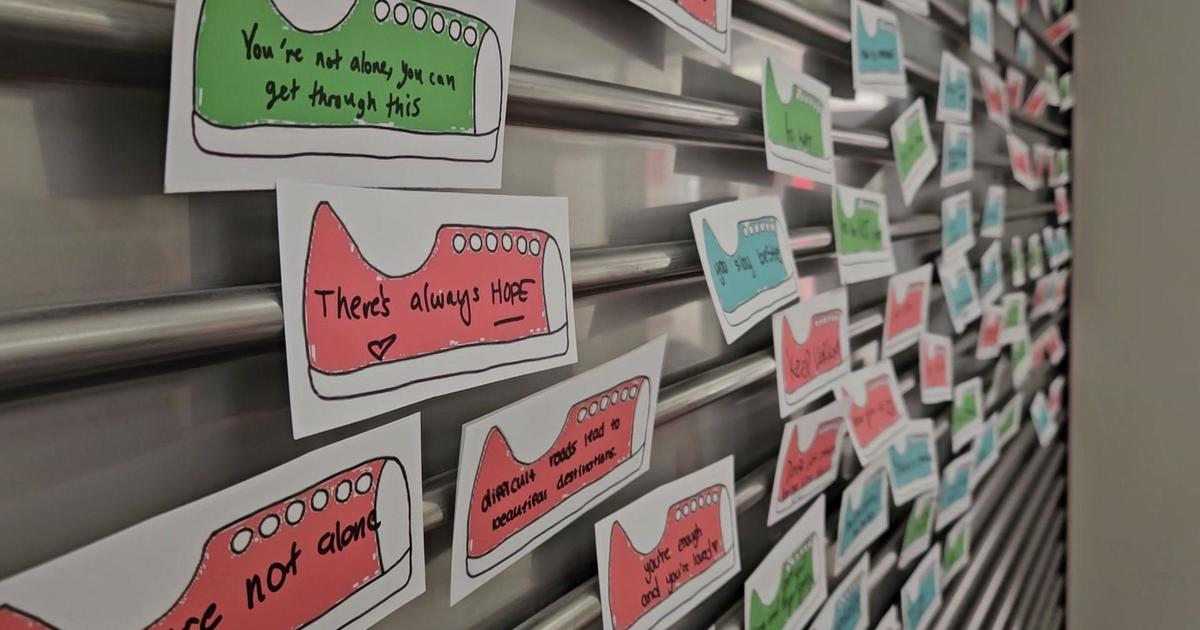St. Paul man pleads guilty to online sextortion scheme; complaints surge as more victims fall prey
ST. PAUL, Minn. -- Two things can be true at the same time: There is more awareness of online dangers than ever before yet there are more victims now than ever before.
"We've been talking about internet safety for a very long time, but we still are seeing these investigations where our youth are targeted and exploited online," Brenda Born, supervisory special agent at the FBI's Minnesota Field Office told WCCO. "Years ago it really was more talking and messaging and grooming with the goal to physically meet up. Now we're seeing the extortion side where online it's trying to get nude or sexually explicit videos."
Among the investigations on Born's docket is an extensive online sextortion scheme that reached nearly 1,000 victims over the past five years.
Yue Vang, 31, of St. Paul, pleaded guilty to four federal charges, including two counts of production of child pornography.
"Their extortion piece is 'I want more images and videos,'" Born explained. "So the threats are: We're going to share it with your family, your school, your hockey team, gymnastics team, your bandmates unless you give me more images and videos."
According to court documents, Vang created up to 75 fake profiles on internet apps and social media platforms, posing as a young girl and enticing his victims to send him explicit materials. Out of the 1,000 victims, only half have been identified, Born said.
"The psychological impact these investigations have on our victims is, it breaks my heart to see what they go through," she said. "The best way to disrupt this kind of criminal activity is awareness, education, and parents having these discussions of internet safety with their children."
Complaints of sextortion, online exploitation surge to record levels
Vang's is the third such "sextortion" case prosecuted in as many months by the U.S. Attorney's Office District of Minnesota. Vang will be sentenced later this year.
In May, prosecutors charged Coon Rapids teacher Glen Robert Anderson, 24, with multiple charges related to an alleged scheme targeting minors through social media and online gaming forums. If convicted, Anderson faces a minimum 15 years in prison.
One month earlier, Mitchell Ottinger, 25, was sentenced to 40 years in prison. Ottinger, a teacher in Carver County, victimized 42 people, including 23 minors, according to court documents.
Nationally, the FBI's Internet Crime Complaint Center is reporting a record 18,000 tips to its agents, including cases where sextortion led to ransom payments of a combined $13.6 million.
"Their lists of friends are online, the contacts are all online. This is such an easy thing to do to a child," Alicia Kozak, herself a victim of an online predator, said to WCCO. "When this happened to me, the internet was plugged into the wall and dial up. Today it's so different. Kids are online constantly, and the predators are online constantly. And predators have access to an unlimited number of victims, that's what's so frightening. It's an endless pool of children they can contact."
On Jan. 1, 2002, then 13-year-old Kozak left her home to meet a teenage boy she had been chatting with online. The boy, however, turned out to be a 38-year-old man who would abduct her and drive her to his home, where he would later torture and rape her. It was all livestreamed online.
After four grueling days, police rescued Kozak thanks to a viewer's tip that led investigators to trace the digital footprint to the suspect's house.
Now 20 years later, Kozak is an acclaimed motivational speaker and advocate for victims. Her Alicia Project campaign is also reaching schools across the country, in addition to police departments, law enforcement agencies, as well as Internet Crimes Against Children (ICAC) task forces.
"This needs to be discussed, because this is a true risk," she said.
What you can do to protect your family
Reporting tips to the FBI and the National Center for Missing and Exploited Children, among others, are obviously key to investigating these crimes and ultimately prosecuting online predators.
Of course, there are also plenty of red flags for users to be aware of to protect themselves.
"Know who you're talking with, and if you don't physically know who they are, just because they're sharing images or videos does not mean that's who they are," Born said. "We've found they're stealing videos and using previous victim images and videos to portray that persona of a young one, male or female. As well as asking you to move from one platform to another platform."
The most effective way to prevent sextortion, however, is to strengthen the parent-child relationship and engage in meaningful discussions.
"In every school I've spoken to, I ask students if they'd tell their parents if this happened, and almost always there will be someone who say they'll get in trouble," Kozak added. "You need to let them know you'll be there for them, you'll listen and not punish them, and that you'll solve this problem together."





